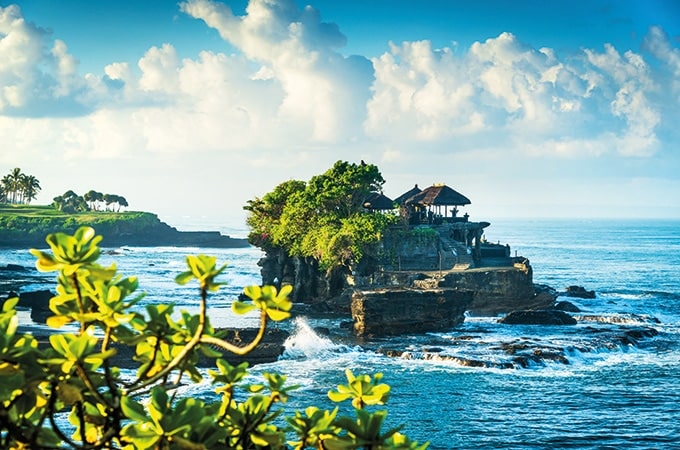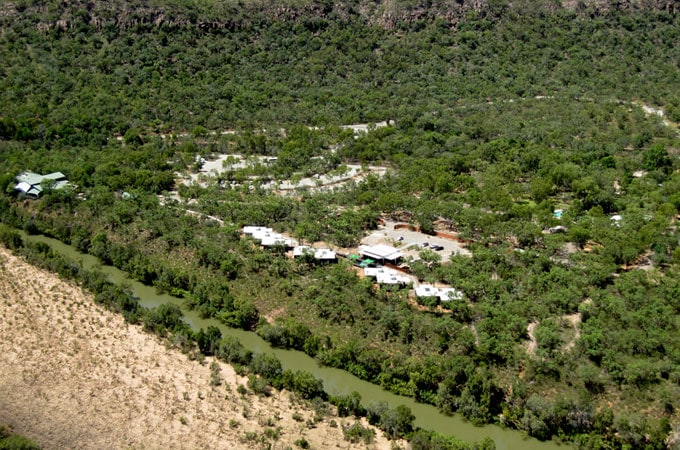For those seeking a deeper understanding of Bali’s rich culture, there are plenty of off-the-beaten-path experiences to be had. From exploring ancient temples and witnessing traditional rituals, to sampling local cuisine at flea markets, this guide is a must-read for culture vultures.
Bali’s art, architecture, and spirituality are truly mesmerising, and this guide offers a comprehensive list of must-see sights and activities. Whether you prefer to delve into Bali’s history and beliefs or want to learn more about its dance, food, and art, there’s something for everyone on the Island of the Gods. Take your time to fully immerse yourself in the sacred sights.
Discover the Rural Charm of Authentic Bali
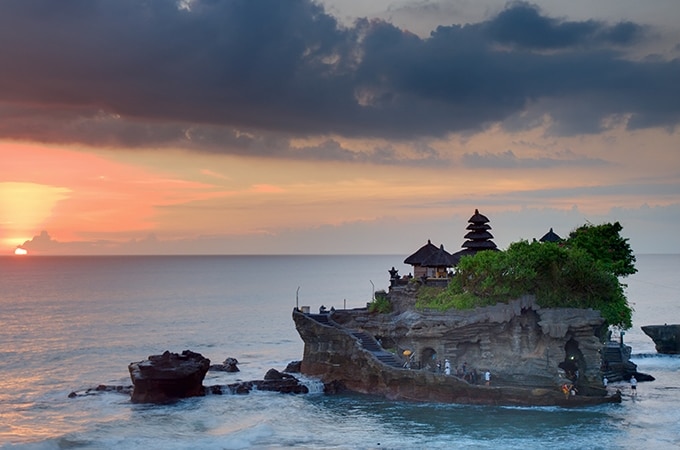
To truly experience the culture of Bali, one must venture into its rural heart. Gulingan Village, located in the lush interior, offers stunning views of terraced rice paddies, coconut palms, and plantations of coffee, vanilla, and cloves. Nearby, visitors can explore the royal water temple of Pura Taman Ayun, considered one of the most beautiful temples in Bali, or brave a visit to the Ubud Monkey Forest, home to hundreds of playful monkeys. The perfect way to end the day is by witnessing the breathtaking sunset at the 16th-century sea temple of Tanah Lot, perched 200 meters off shore. This iconic image of a tangerine sun sinking into the ocean behind the temple is a must-see for any traveller to Bali.
See Ubud’s Iconic Rice Fields
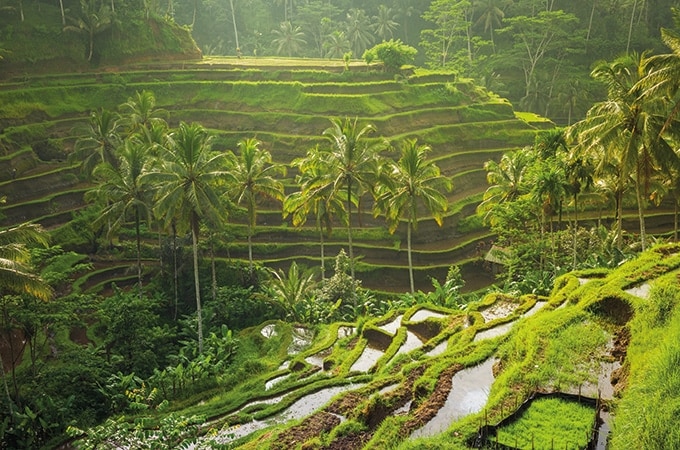
Experience the beauty of Ubud’s iconic rice fields by immersing yourself in the daily life of the surrounding villages with a visit to Tegalalang, Bali’s most popular rice field. Watch as children make their way to and from school, farmers plant rice by hand, and women carry towering temple offerings in colorful clothing. Take a stroll along the Campuhan Ridge Walk, a sacred path that winds between the Wos and Ayung rivers, and enjoy breathtaking views from the narrow pathway that follows the ridge line.
Shop at a Local Market
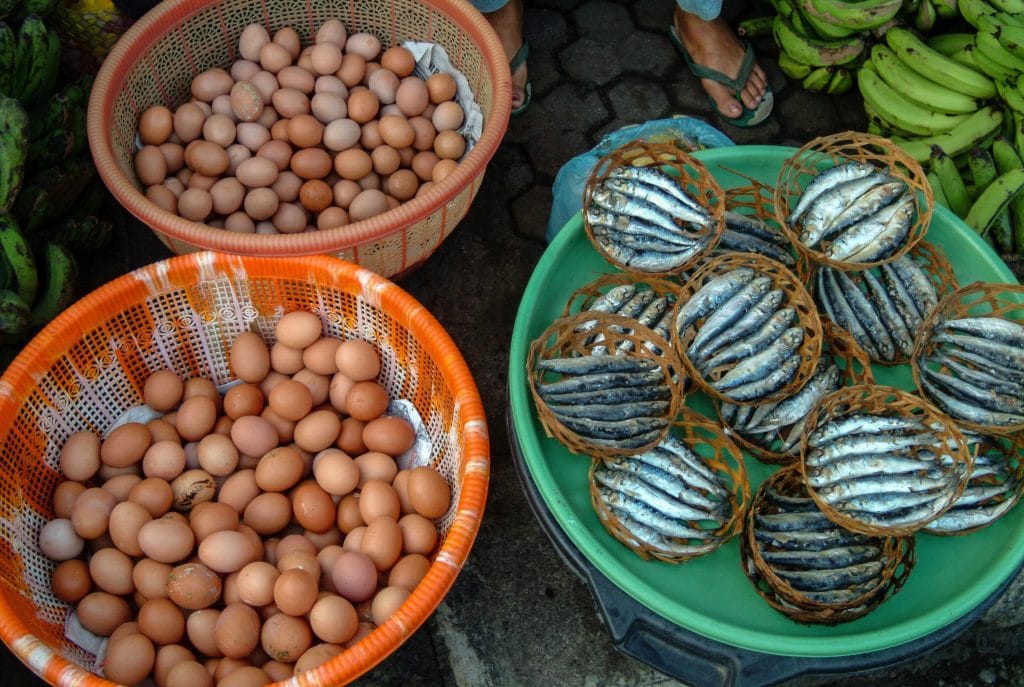
Exploring local markets is a must-do activity when visiting Bali. These markets offer a glimpse into Balinese culture and provide an opportunity to purchase traditional goods at bargain prices. The Badung Market in Denpasar is the largest market on the island and offers a wide variety of items, from sarongs and sunglasses to fruit and vegetables. For a more relaxed experience, check out the Kuta Night Market for delicious street food or the Ubud Traditional Art Market for artisanal paintings and sculptures. The Jimbaran Fish Market is the perfect spot for seafood lovers, while the Flea Market in Seminyak is great for finding unique gifts and souvenirs. And for vintage clothing and homewares, head to the Frog Market in Tabanan and dig through the piles to find hidden treasures.
We think you’ll love this article – it covers everything a first-time visitor to Bali needs to know!
Learn About The Island’s Spiritual Traditions
Balinese ceremonies are a crucial part of Balinese culture, as they are believed to maintain peace on the island. These celebrations and rituals are taken very seriously, with entire communities putting their year’s savings into following tradition and spending big bucks on extravagant temples, offerings, and processions. One of the most prominent celebrations is Nyepi, also known as Bali’s Day of Silence and the New Year according to the Balinese calendar. On this day, everyone on the island must stay indoors in silence with no electricity or lights. The night before, however, is arguably the wildest of all Balinese ceremonies, with large demon structures called Ogoh Ogoh paraded through the streets to keep evil spirits away for the year ahead. Balinese communities spend a fortune on these structures and celebrations, and there are even competitions to judge the best Ogoh Ogoh creation. Other major holy days in Balinese culture include Galungan and Kuningan, with Galungan being the day when the Balinese believe their ancestors return to earth for 10 full days to spend time with their loved ones.
Experience Authentic Bali Cultural Heritage
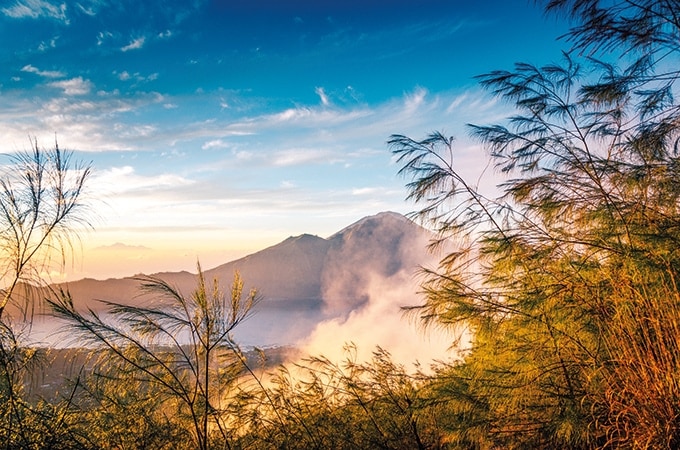
For a truly authentic experience of Bali’s rich cultural heritage, take a two-hour drive from Denpasar to the northeast of the island. Here, you’ll find several villages perched on the rim of the Batur Caldera, also known as Kintamani Volcano. The area is a stark contrast to the rest of the island, with black lava flows from the active volcano meeting the glistening shores of Lake Batur below. In Penglipuran village, you’ll feel as though you’ve stepped back in time, as the community upholds deep reverence for traditional customs and beliefs. For a glimpse into traditional arts, visit Blahbatuh village, home to Bali’s expert bronze casters and renowned for its Balinese musical instruments. Here, you can witness the production of the gamelan, a percussive ensemble that can be heard at ceremonies and shows throughout the island, with its distinctive ‘glong glong’ sound.
Partake in a Balinese Water Purification Ceremony
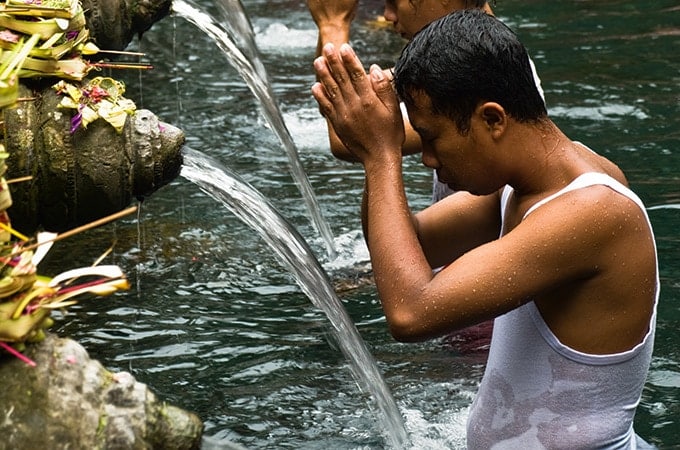
For a unique cultural experience that also promotes health and rejuvenation, consider participating in a Balinese water purification ritual known as Melukat. This ritual takes place at natural springs, often within temple grounds like Tirta Empul Temple in Gianyar, where holy water is used to wash away negative thoughts, nightmares, and even illness. In addition to the spiritual benefits, taking a dip in these sacred hot springs can also improve skin concerns. Don’t miss out on this unforgettable experience during your visit to Bali.
Visit Bali’s Mysterious (and a bit spooky!) “Skull Island”

For a spine-tingling and fascinating experience in Bali, consider taking a boat trip to Trunyan Village. This village is home to the Bali Aga tribespeople, who have a unique tradition of laying corpses underneath a sacred tree called Taru Menyan. According to the villagers, this tree masks any unwanted scents, and its lovely aroma could once be smelled all the way over in Java. The former king created a rule to lay out corpses around the tree to dampen its intense aroma, so no one from outside the village could find the sacred tree. However, what makes Trunyan Village truly unique is its bizarre and chilling funeral tradition. Unlike the usual Balinese Hindu tradition of cremation, real skulls and human remains lie untouched on the ground without any funeral rites. This might not be for the faint of heart, but if you’re interested in a one-of-a-kind adventure, visiting Trunyan Village with a guide is a must.
Looking for romantic Bali accommodation? We’ve found just the place…
Visit a Balinese Healer
Bali is known for its rich culture, and one aspect that has gained attention over the years is the power of traditional Balinese healers, also known as Balian or shamans.
One of the most renowned healers on the island is Pak Sirkus, also known as Bali’s Magic Man. He is said to have performed miracles, from healing broken bones to relieving extreme pain and tension in the body. Using a stick and his healing hands, Pak Sirkus locates and treats physical problems within the body by applying pressure to different pressure points that relate to different parts of the body. He uses natural oils, pressure point massages, and localised stretching to treat the problem. If you plan to visit Pak Sirkus, be aware that he is always busy and works without appointments or fixed prices. Arrive early and be mindful that treatments can be painful but bearable. Also, it’s essential to exercise caution with severe injuries and ailments and consult a doctor at home to ensure nothing more sinister. The price for treatment is by donation only, but it’s recommended to donate at least IDR 300,000. You can locate Pak Sirkus in his home on Jl Pantai Berawa, opposite Pels Supershop.
Related Article: The Adventure-Lovers’ Guide to Bali
